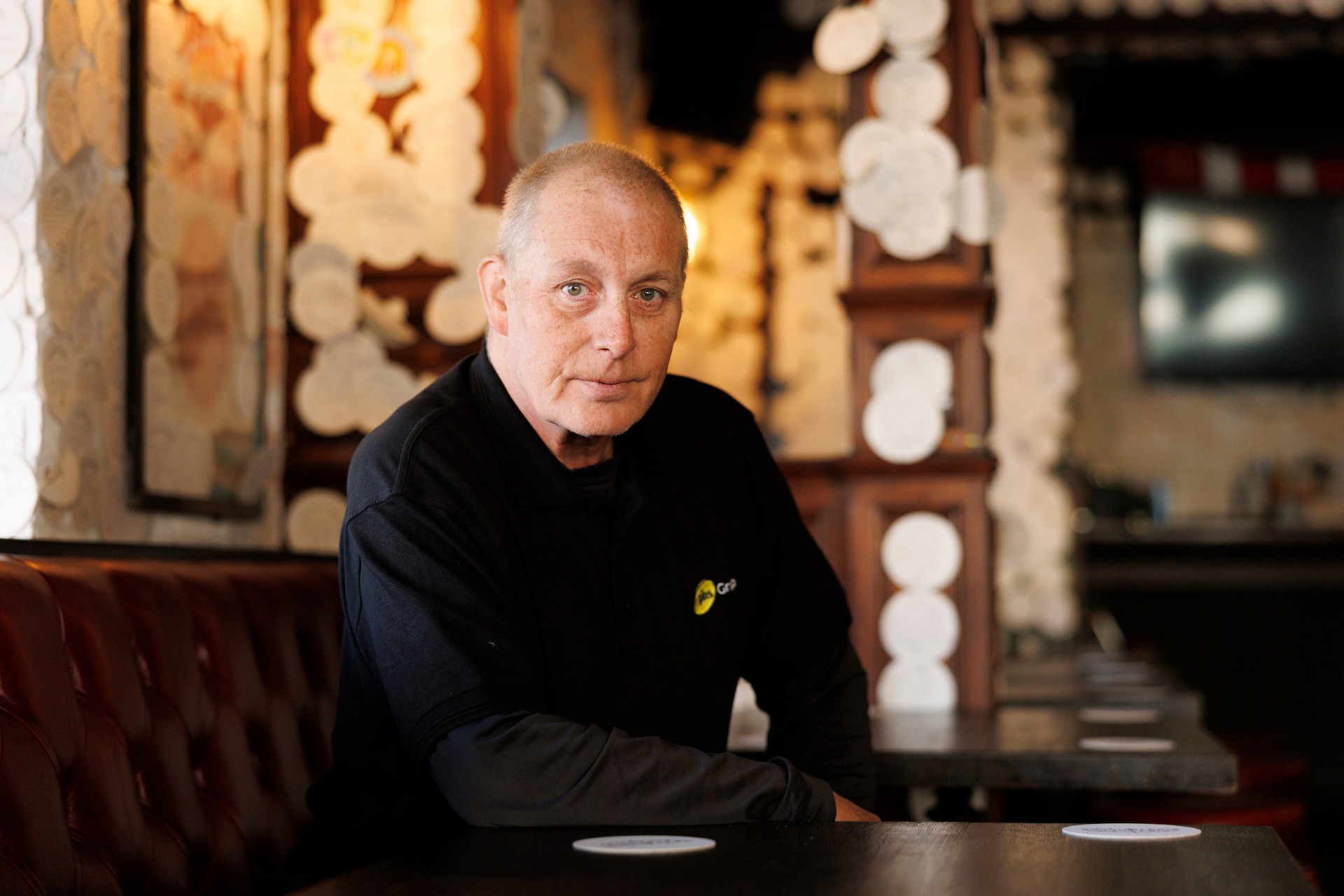When Dublin man Marcus Humphries was diagnosed with prostate cancer in 2021, he had no idea the hardest part of his recovery would come after treatment – trying to get on with life while living with urinary incontinence.
Marcus, 59, has worked with phs Ireland for 18 years as a delivery driver, installing and maintaining washroom products.
During chemotherapy, he had a catheter in place for nine months, and says the lack of proper facilities for men made everyday life far more difficult than it needed to be.
“When I was going through chemotherapy, I had a catheter for nine months. I’d be out and about for work and trying to get on with life, but if I needed to change the bag or a pad there was nowhere in the cubicle with a bin so I’d have to go back home,” he said.
“It makes you nervous about going out at all. I wanted to go to those weddings, my granddaughters’ birthdays, but it was a pain.”
Marcus is sharing his story as part of ‘Dispose with Dignity’, a new awareness campaign from hygiene services company, phs Group, supported by the Irish Cancer Society and the Irish Men’s Sheds Association.
The initiative aims to tackle stigma around male incontinence and improve access to hygiene facilities such as sanitary bins and vending products in men’s washrooms nationwide.
As many as half of all men who undergo prostate removal go on to experience urinary incontinence. 1
“It’s time we opened up about it,” said Marcus. “So few men talk about the issues that they have afterwards. There was even someone in my office having treatment at the same time as me, but we have never talked about it or the side effects that come along with it.”
“It’s such a simple thing – a bin – but it would make life easier for thousands of men. If they were in toilets, people would start talking about it, and that would help men talk about prostate cancer more and get tested earlier. It’s about dignity.”
Underpinning the campaign is new research from iReach, commissioned by phs Group, highlighting the impact of urinary incontinence on men’s confidence and mental health.
Of the 702 men surveyed, more than half (52%) said they feel anxious about going out in public due to a lack of suitable toilet facilities, while 65% have been negatively affected by not being able to find a toilet when needed. One in seven (14%) report feeling depressed about how their life has changed.
Among younger men aged 18–34, the mental health impact is particularly severe, with 41% reporting anxiety and 24% depression.
Over half (54%) of men have struggled to find a bin suitable for disposing of incontinence pads, with nearly half (46%) resorting to using disabled toilets or flushing products away
“One in six men will be diagnosed with prostate cancer, and life-saving treatment can often lead to lasting side effects such as urinary incontinence that can profoundly affect confidence, social life and wellbeing,” said Michelle Lonergan, Cancer Awareness Nurse, Irish Cancer Society.
“We urgently need greater awareness of the challenges men face and better facilities that support their dignity as they navigate life through and after cancer.”
Eoin Foley, managing director of phs Group Ireland said that by. installing male sanitary bins, businesses and public facilities can make a real, practical difference to men’s confidence and independence.
“Through ‘Dispose with Dignity’ we’re tackling the stigma around male incontinence head-on, raising much-needed awareness, and calling for solid measures that can give men back the independence and lives they once knew.”
